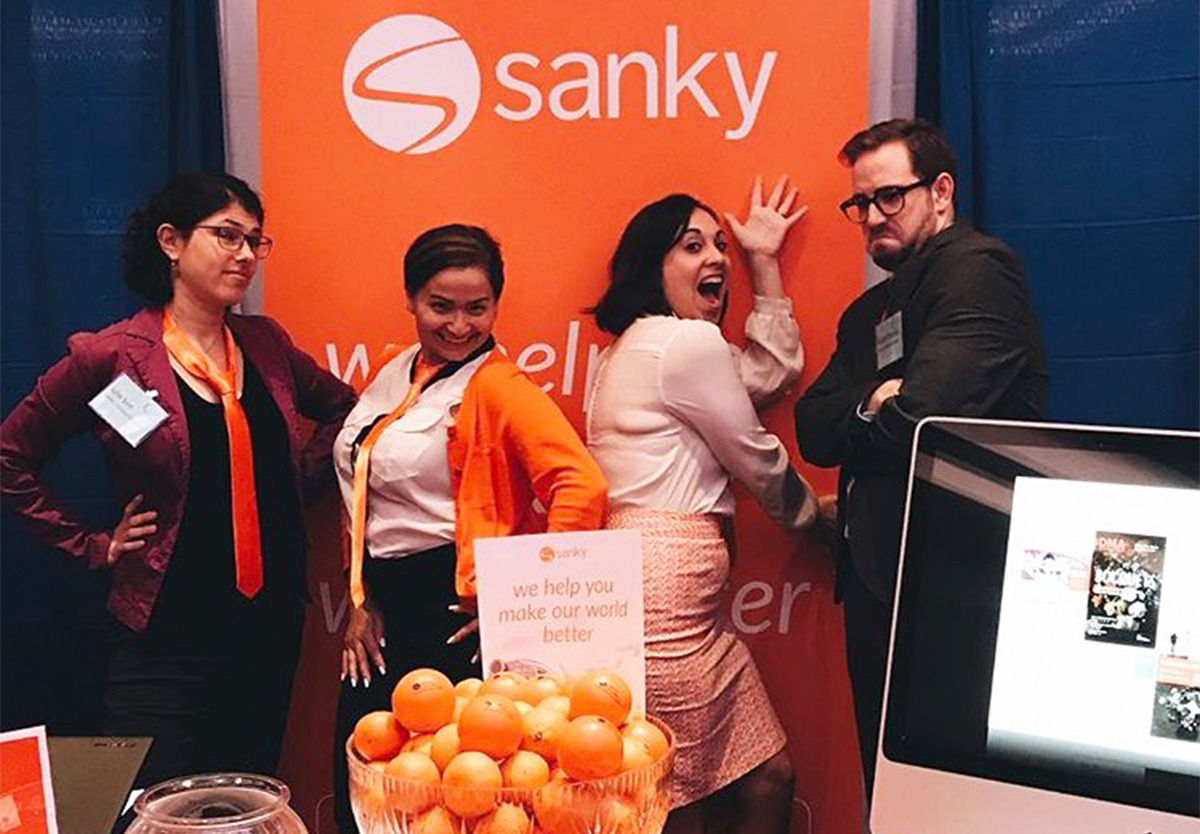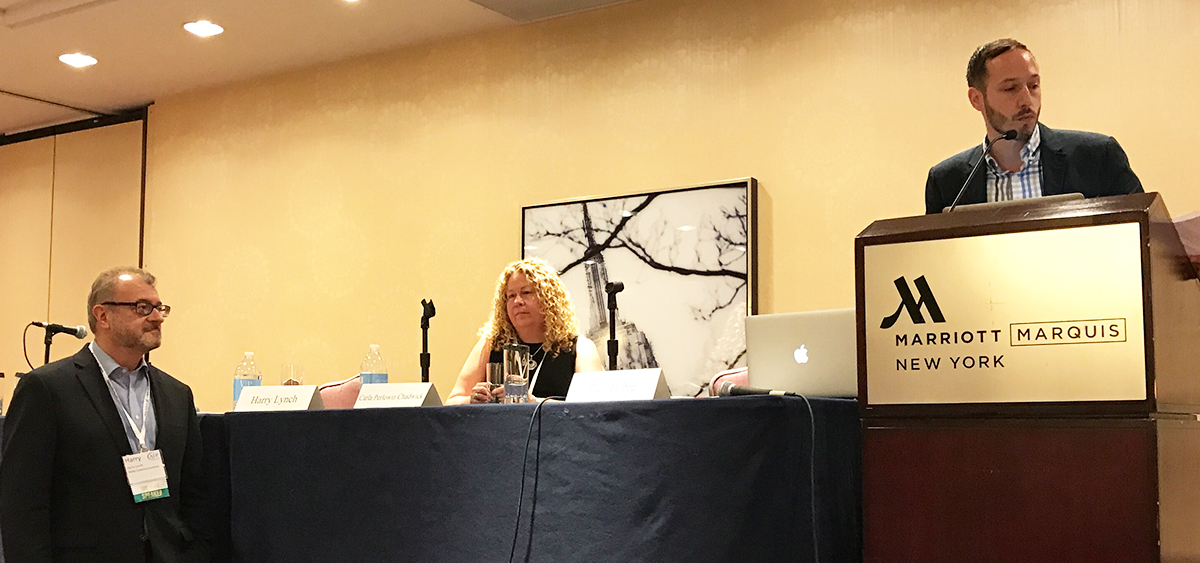Fundraising Day in New York 2017: Education, immigration and doughnuts!

Fundraising Day in New York 2017 began early for me. As a volunteer to Fundraising Day in New York, I arrived at 7 a.m. to help with registration. I’ve never seen so many lanyards in all my life! It was great getting to see so many new faces and to make sure everyone had their program in hand.
My registration shift ended right in the middle of the first session, so I decided to check out the Solutions Center and visit the booths. Our own Sanky booth was filled with orange in the form of tangerines, stress balls, and neckties on our always-helpful representatives, but it was quickly apparent that the Pier Sixty, LLC booth would have the biggest crowds thanks to their doughnut towers.

I moved on to the “Women: Philanthropy’s New Power Players” session, which was my favorite of the day. I noted lots of great points during this session, but my three key takeaways were these:
-
Speaking generally, men feel a duty to give to a charitable organization, while women feel a responsibility. So while year-end messaging that simply states “It’s time to make your yearly gift” may work on men, women tend to want more information and to see exactly how their gift would impact an organization.
-
Women aren’t necessarily motivated by recognition – many of them make contributions to organizations but wish to remain anonymous, whereas men are more likely to accept acknowledgment. Organizations may want to encourage women donors to accept the recognition so their giving can serve as an example to future generations.
-
Databases of record (such as Raiser’s Edge) were often created without considering women as equals possibly because older database programs didn’t have easy ways of recording a household with different last names. Being able to properly address a woman in communications is vitally important to building a relationship with a female donor.
Next up was lunch, where the Rt. Hon. David Miliband, President and CEO of International Rescue Committee, gave an inspiring speech outlining how fundraisers are the unsung heroes of NGOs. His work with refugees in the United States and around the world has given him a deeper perspective on how charitable gifts and activism can impact a person’s life as well as a community’s prospects.
After lunch, I attended the “State of the Sector: Money and Mission in a New Political Era” session, which discussed fundraising in our new, uncertain political times. Here are three key takeaways from that session:
-
We’ve been in similar situations before – facing uncertainty in terms of policy and budgets. The difference this time around is that the outcome of the 2016 election caught everyone off guard and many organizations did not have a “Plan B” in place.
-
Advocacy is a critical part of the work any organization does, regardless of whether they are designated as an advocacy group. Now is the moment to tell people why your work is significant, and if you have a good story to tell, tell it!
-
The proposed tax code change may impact charitable giving negatively. If it is approved, it could potentially result in the loss of billions of dollars in donations. However, a survey conducted by the “Chronicle of Philanthropy” indicated that 1/3 of the donors surveyed intended to give more this year in an effort to offset lost donations next year.

I ended my day at the “Truth or Consequences in Online Fundraising” session with Sanky’s own Paul Habig and Harry Lynch, as well as Covenant House’s Carla Chadwick. The team posed a question to the crowd, who were instructed to guess if it was true or false. It was exciting to see a room full of people engaged in digital fundraising – and to see how many people were excited about the work we're doing here at Sanky Communications. Here's one of my favorites to keep you pondering: The most powerful and effective techniques are often the least exciting. (This is true, by the way! List hygiene is more important than ever, appends and ECOAs tend to show positive return on investment within 12 months and liftnotes over email resends often out-perform the original email.)
Like what you read? Check out this related post:
